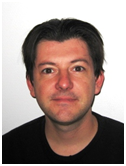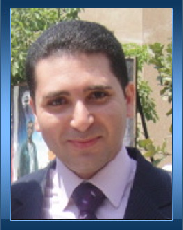Keynote 1: Modeling and control of microbial ecosystems and biological processes
Microbial ecosystems are the functional core of biotechnological processes. In this presentation, particular attention will be given to the so-called "chemostat"
which makes it possible to produce cultures of microorganisms.
As a first step, we will review the different types of models available
and see how useful their analysis can be to better understand some of today's important ecological issues.
In particular, we will address issues of optimizing the functioning of these systems in relation to ecosystem biodiversity.
We will also present recent results of optimal control in order to maximize the performance of certain depollution reactors.

Prof. Jerome Harmand, LBE-INRA-France
Jerome Harmand is Research Director at INRA (French National Institute in Agronomic Research). Since 2015, he has led the SAMI team (System, Analysis, Modeling, Informatics) within the Laboratory of Environmental Biotechnology (https://www6.montpellier.inra.fr/narbonne). He is also the coordinator of the Euro-Mediterranean research network TREASURE on the reuse of non-conventional waters (www.inra.fr/treasure) and the coordinator of the SICMED-REUSE network (www.sicmed.net).
His research focuses on the modeling and control of microbial ecosystems and bioprocesses. More precisely, the aim is to develop methods from automatic control theory for analysis and design, control and observation and, more generally, for the optimization of biological processes for environmental purposes (liquid and solid waste treatment, biomass valorization,...).
According to the scale of modeling adopted, considering as an elementary entity of a biological system sometimes the microbial individual, sometimes the floc or an element infinitesimal of biolfilm sometimes the reactor, his research aim to identify and understand the links and interactions which condition the macroscopic behavior observed at the level of a population or a process and use the knowledge generated (formalized in the form of a system of differential equations) in order to better understand or even optimize the functioning of the entity studied.
He is the author of 95 papers in international peer-reviewed journals, about 120 papers in international conferences. Co-author of two patents, he has participated in several scientific books including the most recent "The chemist at: Mathematical theory of the continuous culture of microorganisms" which is the first volume of an ISTE series on modeling and control of bioprocesses.
Keynote 2: Intelligent Techniques for Maximum Power Point Tracking (MPPT) of Photovoltaic System: Applications and Future
Maximum Power Point Tracking (MPPT) methods are used in photovoltaic (PV) systems to continually maximize the PV array output power which generally depends on solar radiation and cell temperature. MPPT methods can be roughly classified into two categories: there are conventional methods, like the Perturbation and Observation (P&O) method and the Incremental Conductance (IncCond) method and advanced methods, such as, fuzzy logic (FL) based MPPT method. This presentation presents a survey of these methods in order to analyze, simulate, and evaluate a PV power supply system under varying meteorological conditions. This presentation also summarizes the current technology and status of soft computing MPPT as reported in various literature. It also provides an evaluation on the performance of various soft computing methods based on several criteria, namely PV array dependency, convergence time, ability to handle partial shading conditions, algorithm complexity and hardware/practical implementation.

Prof. Ahmad Taher Azar, Benha University-Egypt
Dr. Ahmad Azar has received the M.Sc. degree (2006) in System Dynamics and Ph.D degree (2009) in Adaptive Neuro-Fuzzy Systems from Faculty of Engineering, Cairo University (Egypt). He is currently assistant professor, Faculty of computers and information, Benha University, Egypt.
Dr. Azar is the Editor in Chief of International Journal of System Dynamics Applications (IJSDA) and International Journal of Service Science, Management, Engineering, and Technology (IJSSMET) published by IGI Global, USA. Also, he is the Editor in Chief of International Journal of Intelligent Engineering Informatics (IJIEI), Inderscience Publishers, Olney, UK.
Dr. Azar is associate editor of IEEE Trans. Neural Networks and Learning Systems. Dr. Ahmad Azar is a senior member of IEEE since 2013 and has worked in the areas of Control Theory & Applications, Process Control, Chaos Control and Synchronization, Nonlinear control, Robust Control, Computational Intelligence and has authored/coauthored over 190 research publications in peer-reviewed reputed journals, book chapters and conference proceedings.
He is an editor of many Books in the field of Intelligent control, Sliding mode control, Fuzzy logic control, Chaos modeling and control, computational intelligence, and Machine learning.
Dr. Ahmad Azar is closely associated with several international journals as a reviewer. He serves as international programme committee member in many international and peer-reviewed conferences.
Dr Ahmad Azar is currently the Chair of IEEE Computational Intelligence Society (CIS) Egypt Chapter, Vice chair of IEEE Computational Intelligence Society Interdisciplinary Emergent Technologies Task Force and vice-Chair Research Activities of IEEE Robotics and Automation Society (RAS) Egypt Chapter. Also, he is the Vice-president (North) of System dynamics Africa Regional Chapter and an Academic Member of IEEE Systems, Man, and Cybernetics Society Technical Committee on Computational Collective Intelligence.
.